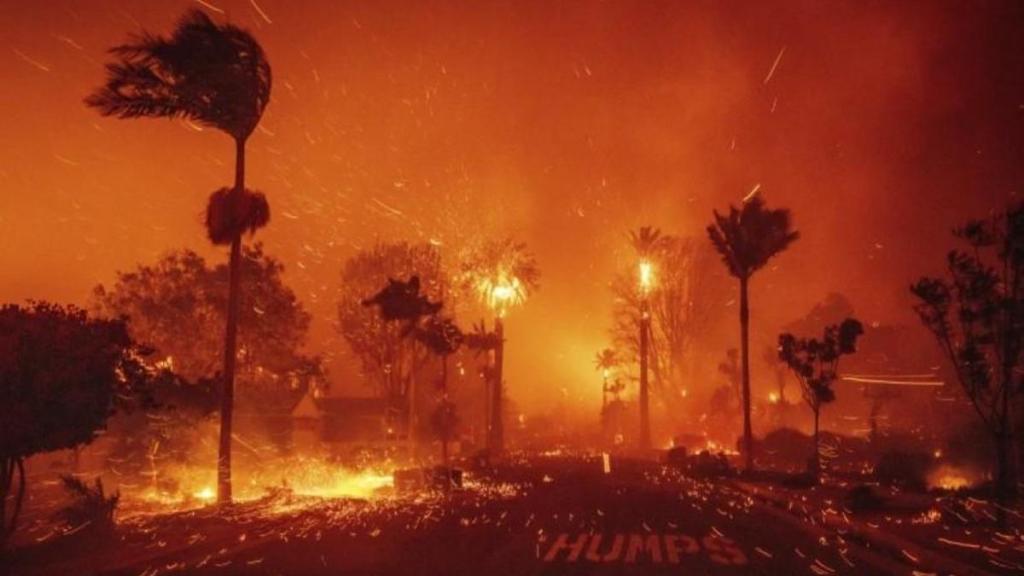The Palisades and Eaton fires in California continue to cause significant damage, with the Palisades Fire now covering over 23,000 acres and 14% contained, and the Eaton Fire spanning 14,000 acres with 33% containment. In light of these ongoing fires, analysts at KBW have raised their insured loss estimate for the Los Angeles wildfires to a range of $25 billion to $40 billion.
The presence of multiple active fires, including the nearly contained Hurst Fire and the newly ignited Auto Fire, suggests further potential for increased insured losses. According to multiple global media reports, KBW has updated its primary insurance loss estimates, factoring in a $25 billion industry loss scenario, which would result in net losses for companies like Allstate, AIG, Assurant, and others that are expected to be near or slightly above their reinsurance retention limits.
Raising the insured loss estimate to $30 billion or $35 billion would bring the reinsurance towers of insurers like The Hartford, Cincinnati Financial, Skyward Specialty, and James River Group into consideration.
At the high end of the estimate, $40 billion, analysts expect W.R. Berkley’s net losses from the fires to surpass its reinsurance retention, along with the companies previously mentioned. For larger carriers such as Chubb, a $40 billion industry loss could lead to substantial losses of around $1.4 billion for the company, while Travelers could face nearly $1.8 billion in wildfire-related losses.
84,000 more people could be ordered to evacuate, officials warn
Firefighters across Los Angeles were on high alert Tuesday, preparing to tackle flare-ups or new wildfires. The National Weather Service issued an unusual warning, stating that dry winds combined with extreme drought conditions created a “particularly dangerous situation,” meaning any new fires could rapidly grow in size. This alert follows last week’s devastating wildfires, which destroyed thousands of homes and claimed at least 24 lives.
Two disaster recovery centers open in California
Representatives from the Federal Emergency Management Agency (FEMA), the Small Business Administration, state agencies, and various charities are on-site to assist those affected by the fires.
FEMA offers up to $770 to cover immediate evacuation expenses, but larger grants of up to $43,600 are typically only available after insurance payouts. Individuals who receive the maximum FEMA grant may also qualify for an additional $10,000 from the state. For expenses not covered by insurance or FEMA, the Small Business Administration provides low-interest loans to both individuals and businesses. Businesses can borrow up to $2 million, while homeowners can access loans of up to $500,000 for rebuilding and an additional $100,000 for personal property.

